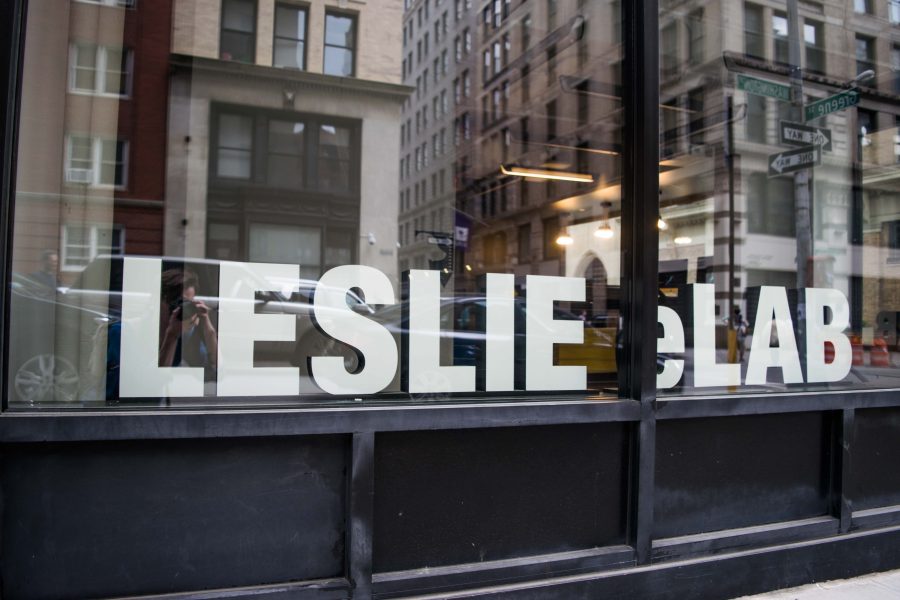Tech@NYU’s Tech Week kicked off with events on the Ethics of AI and Women in Product Management. Tech@NYU is a community of students interested in technology who host public events throughout the academic year.
The first event, Ethics of AI, was hosted at the Leslie eLab on Monday. Founder and Director of the AI Ethics Lab Cansu Canca presented on how new studies can highlight the biases that artificial intelligence technologies can have.
Canca gave a hypothetical example of a tool that decides whether an individual should be given a loan. This tool would use past cases of bankers who have given out individual loans to determine if someone should receive a loan. However, this AI does not account for practices like racial discrimination that would have previously prevented certain populations from receiving loans and just assumes that everyone was given equal opportunity for loans. Without being able to make this distinction, the AI would continue to use this discriminatory practice.
“While you are trying to create an objective tool, we end up making a tool that replicates that problem instead,” Canca said.
Her lab, AI Ethics, hopes to integrate ethics into the design as well as the development of such products by having developers evaluate the sources of data their AI will use before the product goes to market.
“These issues with AI make it so that when AI is used in real-life situations, it systematically discriminates against populations,” Canca said.
In response to a student question about the role that the government should play in the regulation of AI technology, Canca stated that the government should mainly provide a set of broad regulations that do not impede people from developing new products.
“The framework should be put forth by the government, but what’s inside the framework should be done in a self-regulatory structure,” Canca said.
At the second event of the week, Nicole Kwoh, product manager at Latch — a company that outfits buildings with smart locks — spoke about her unique journey from studying for a doctorate in history at Columbia University to entering the tech industry. She focused on her experience with product management for the International Rescue Committee at Canvas United, a digital agency that specializes in using technology to help clients connect with consumers. Responsible for the development of products, product managers are involved in the process from concept to design. They essentially plan how a team of engineers, designers and others are going to develop a product and then ensure the execution of the plan.
One of the first steps in product managing is thinking about who will be using the product.
“It’s really about the people,” Kwoh said. “A lot of people come to you with an ask that has nothing to do with people, but it’s up to the product manager to insert the user into the problem.”
Kwoh applied this principle when she was hired by the IRC, a group that provides global humanitarian aid and relief. Kwoh was tasked with developing a product that could be used by first responders within the IRC to come up with a plan on how to address the particular situation they are sent into. For example, if there is an outbreak of malaria and responders were looking to prevent the spread of the disease, the product would provide information on the best way to do so given past IRC members’ experiences and research.
“[The IRC] has been around for decades, but every time someone new comes and solves the problem, they’re unable to access that past experience,” Kwoh said. “They’re relying on institutional history passed around by word of mouth.”
Because IRC first responders often have limited access to the internet, Kwoh’s job was more difficult. Over the course of a year, she worked to use existing data the IRC had on what methods were most effective in solving problems and created an interactive app that made them accessible to first responders.
The app allows IRC members to choose an outcome they want to achieve, like providing pregnant women with access to necessary nutrition and using a flowchart to help them figure out the most effective method of achieving this based on their particular situation. It labels types of interventions that have proven to be more effective by evidence and allows users to download relevant information so that a constant internet connection is not necessary.
After describing her experience with the IRC, Kwoh described how, when working with a company, everyone goes to the product manager for requests she often has to decline in order to stay on task.
“You basically have to say no all the time,” Kwoh said. “I can make people’s dreams come true, but most of the time I’m crushing people’s dreams.”
Tech Week will continue until Friday, with events happening every day. On Thursday, Tech@NYU is hosting a tour of the Stack Overflow Offices on William Street. Tech Week will conclude with a chance for students to demo their ongoing projects at DemoDays.
Email Victor Porcelli and Mansee Khurana at [email protected]


























































































































































